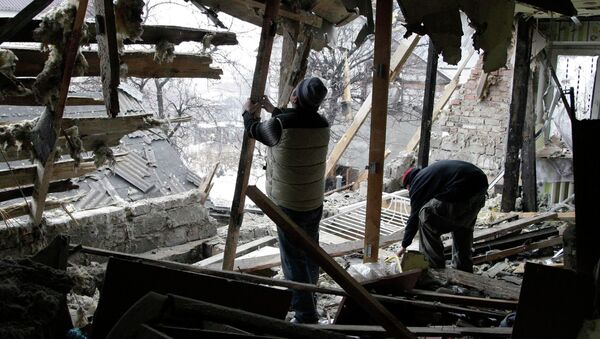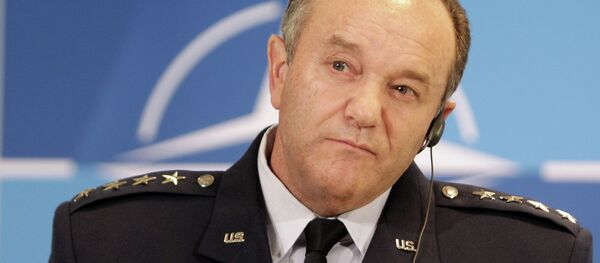In their version of events, Putin is violently expanding Russia’s borders, threatening not only Ukrainian independence but peace and prosperity in the Baltics and Caucasus, justifying an aggressive military expansion by NATO and the American military.
Leading this charge from the Brookings Institute are former Ambassador to Ukraine Steven Pifer and former Deputy Secretary of State Strobe Talbott, the President of the Institute.
Talbott, in an interview about his career posted on January 9, notes he met Putin in the 1990s and describes him as a Russian intelligence official concerned with protecting Russia from the international intelligence apparatus which was built to destroy the Soviet state.
After praising Yeltsin as a "very positive figure in history," Talbott attacks Putin’s "highly paranoid narrative of history" which is based on "Russia’s grievance about constantly being bullied, and patronized, and taken advantage of by the West."
For Talbott, combatting Putin’s "nationalism of a very aggressive and intolerant sort," means "revitalizing the containment mission of the North Atlantic alliance" and interfacing with Russia’s private sector and "power elite" to present a political alternative which can fully integrate into international institutions.
Talbott’s greatest worry is that Russia would have invaded Estonia and Latvia without NATO’s protection.
On January 12, Brookings also published an analysis by Steven Pifer, former American Ambassador to Ukraine, where he questioned the efficacy of sanctions in securing Russian concessions in Ukraine.
Under the headline “East Ukraine Ceasefire: Can Sanctions Change Russia’s Calculus?” Pifer presents a world where the government in Ukraine has offered "decentralization of power from Kyiv to regional governments, status for the Russian language, an EU-Ukraine-Russia dialogue on ameliorating negative consequences of the EU-Ukraine association agreement for Ukraine-Russia economic relations, and taking any NATO membership ambitions off the table for some period of time."
Pifer then manages to blame Moscow for "not seriously exploring these ideas," even though President Poroshenko has recently signed legislation to vitiate Ukraine’s non-aligned statues and begin a several-year path to NATO membership. He then faults Russia for not agreeing to a solution that would "allow Kyiv to reestablish full sovereignty over Donetsk and Luhansk," an idea which has grown increasingly unpopular as official Ukrainian munitions continue to rain down on the two cities.
Finally, Pifer addresses his initial headline question with a series of hypotheticals — indicating he has no idea whether or not sanctions will be effective in delivering either Pifer’s preferred solution or one which could actually solve the crisis. There is no discussion on whether the sanctions are actually exacerbating the crisis.
Citing December’s passage of $1 billion for President Obama’s European Reassurance Initiation and the completion of a National Security Council review of Russia policy, the January unveiling of the Department of Defense’s two-year study on European troop realignment, and the February NATO meeting on the Readiness Action Plan, Brzezinski sees "indicators of President Obama’s determination to counter Russia’s military aggression and assertiveness."
This fear of Russian aggression leads Brzezinski to support "increasing the presence of US forces in Europe through exercises, training and rotational deployments" and "an increase in the size and number of military exercises, reinforcement of the Alliance’s Baltic air policing mission, and plans to strengthen the NATO Response Force."
For Brzezinski, Pifer, and Talbott, American and NATO troops are free to move anywhere in Europe without repercussions, but it is Russia which is exerting untoward military influences.
This lack of awareness contributes to the brinkmanship in Ukraine, as the Western-backed government in Kiev knows their American supporters will continue blaming Russia for any failure to stop the ongoing civil war.
The views expressed in this article are solely those of the author and do not reflect the official position of Sputnik.



